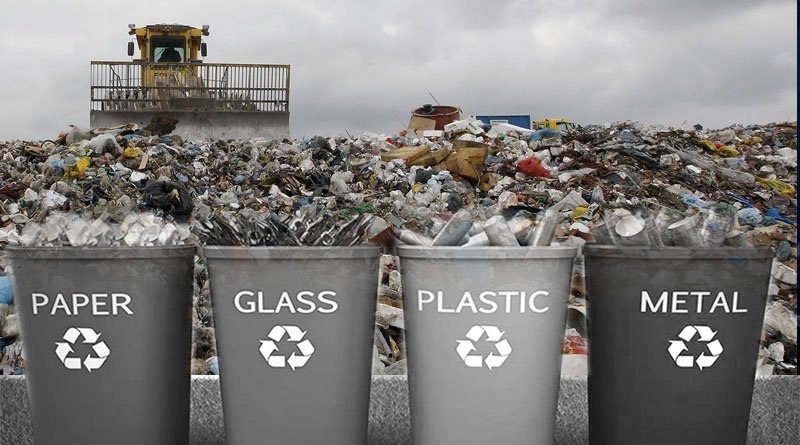Babar Abbas, consultant at LWMC stated that developed countries are recycling their trash by dumping it in order to properly utilise resources.

Environmentalists have proposed promoting ideas and practises of recycling trash dumps into useful resources for better and more sustainable solid waste management in the country. This suggestion was made during a webinar on “Solid Waste Management in Pakistan,” hosted by the Institute of Urbanization (IOU), an organisation dedicated to making cities more environmentally friendly.
“Our waste is a valuable resource that provides numerous opportunities, such as converting trash into organic fertiliser, obtaining biogas, producing different products through recycling, and generating electricity,” said Babar Abbas, consultant at Lahore Waste Management Company (LWMC).
“Promoting the concept of waste as a resource will not only create livelihood opportunities, but will also address a serious environmental issue of a lack of proper solid waste management systems, which is also an international obligation for us in terms of achieving the Sustainable Development Goals (SDGs),” Babar noted.
He believes that we need to raise awareness about the potential of solid waste as a useful resource by converting organic waste into useful soil conditioners and fertilisers that can be used in a variety of domains to promote agriculture and vegetation patterns in both urban and rural areas.
There are a number of ways to recycle trash dumps into useful resources. One common method is through the process of landfill mining, where waste is excavated and sorted to extract recyclable materials such as metals, plastics, and paper.
As an agricultural country, the majority of our waste is organic, originating from livestock and farmhouses, and can be easily converted into the useful product of biogas, which requires very little infrastructure and can help to some extent alleviate the country’s energy crisis.
“Through the prevalent practise of solid waste dumping, we are also burying tonnes of useful resources that our trash contains, such as combustible waste and non-combustible waste, also known as organic and green waste,” Babar explains.
He went on to say that combustible waste includes plastic, glass, paper, cardboard, and metal, and that if these items are properly separated, we can use them to make a variety of useful products and create a variety of job opportunities for people.
The most serious problem is the mishandling of our solid waste, which requires a great deal of education to educate people about the potential of both combustible and non-combustible waste, which, if segregated at the household level or dumping sites, can benefit us both financially and environmentally.
He added that developed countries are recycling their trash by dumping it in order to properly utilise resources. He went on to say that by installing large-scale incinerators, not only can solid waste be properly managed, but electricity can also be generated.
To achieve long-term solid waste management, we must work to mobilise citizens’ support for proper trash disposal at the household level through education. Similarly, for a proper system, we need to build capacity to ensure that the technologies we develop are in accordance with our local conditions and have trained staff.
We can also bring recycling industries on board by providing subsidies and green points in exchange for preferential import and export treatment.
He advised the country’s waste management sector to design and develop an infrastructure through which they can work and develop technologies that do not require a lot of money or expertise, such as composting and bio-gas.
“Improper solid waste management is a major concern for public health that needs to be addressed at the government and individual levels,” observed Adeel Saeed, a Peshawar-based environmental journalist.
According to Adeel, up to 60% of solid waste in both urban and rural areas is not collected properly, posing environmental risks by polluting irrigation channels through canal passages.
According to Syed Hasnaian Raza, an Environmental Researcher, waste can be converted into a resource, but it requires awareness, commitment, and implementation. Every minute, approximately one million plastic bottles are sold globally, and the size of plastic waste accumulation in seas is covering a large portion of water, which is a serious concern.
In contrast, he continued, due to population growth, small cities have grown into large ones, and residents are facing a slew of environmental issues as a result of improper solid waste disposal. He stated that while innovative ideas about the useful utilisation of solid waste are floated on a regular basis, these practises are not promoted due to a lack of proper attention.